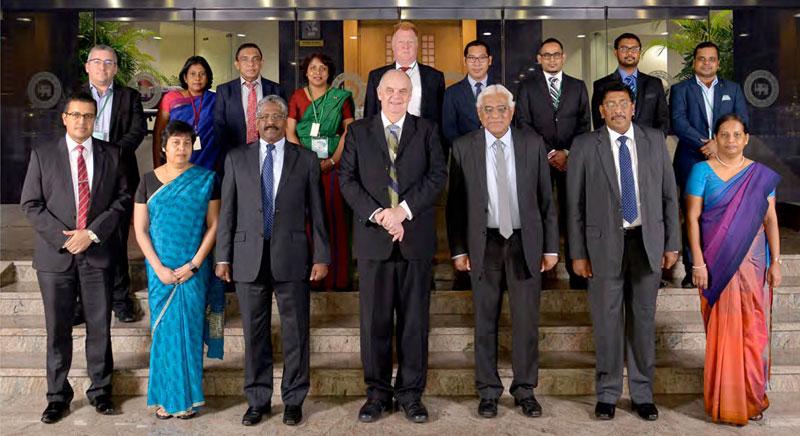
The collapse of exports coupled with the foreign ‘borrowing binge’ on commercial terms, during the past decade and a half, were the root causes of Sri Lanka’s current predicament in debt metrics, Central Bank governor Dr. Indrajit Coomaraswamy told guests at the 10th International Research Conference of the Central Bank of Sri Lanka (CBSL) last week.
The CBSL Governor, however, said the macroeconomic frameworks that are being put in place and being institutionalised through legal enactments would provide a better framework for macroeconomic policy formulation.
“One of the major challenges that has emerged in the economy has stemmed from the fact that exports have come down from about 33% of GDP in the year 2000 to 12.7% in 2016. At the same time, foreign commercial borrowings increased from 3% of GDP in 2007 to 13% in 2016,” the Governor pointed out.
Speaking on liability management, Dr. Coomaraswamy said Sri Lanka has a challenge in terms of facing a peak in its domestic debt servicing next year and then a bunching of external debt from year 2019.
However, he said the country has been fortunate that there has been a breathing space in the past five months of this year where there hasn’t been any debt maturities. This has enabled policymakers to build a buffer for managing the peaking of domestic debt next year.
The governor emphasised that the proposed Liability Management Act to be enacted early next year will provide Sri Lanka the space to manage external debt because at present, the Appropriation Act sets a ceiling on government borrowing equivalent to the government’s requirement for that particular year.
“You can’t borrow more than that, so you can’t borrow money to create a buffer for your external debt servicing requirement. So the new Act will provide that flexibility specifying reasons why the government’s particular requirement for the year can be exceeded,” Dr. Coomaraswamy said.
He further said the main objective of the current structural reforms is to get the economy to be more competitive and productive and to shift resources both financial and human from low productive activities to higher productivity.
The conference was organised under the theme of ‘Macroeconomic Policy Reforms towards a Vibrant Future’ with the aim of encouraging innovative theoretical and empirical research on current macroeconomic policy issues, while providing a platform for researchers from policy making and academic institutions to share their experiences and views from diverse perspectives.
The event attracted eminent researchers from renowned universities, research institutions and central banks around the world.
This conference featured a keynote speech by Prof. Keith Houghton, Emeritus Professor of the Australian National University (ANU), who has been an influential figure in the Australian academia.
Delivering the keynote speech, Prof. Houghton said public expenditure needs to be driven with the objective of providing “value for money” for the taxpayers. He said that public spending on government universities should be efficiently allocated using innovative evidence based techniques.
The two technical sessions of the conference were chaired by Assistant Governors of the Central Bank of Sri Lanka, Mrs. S. Gunaratne and H. A. Karunaratne.
The technical sessions included eight research papers on macroeconomic issues and financial sector issues presented by researchers from Australia, France, Germany, India and Sri Lanka, including researchers from the Central Bank of Sri Lanka.
The research papers were selected by an eminent external panel of reviewers from local and international universities, the International Monetary Fund, the SEACEN centre and other reputed research institutions of the country.
The Dr. D. S. Wijesinghe Memorial Award for the Best Research Paper was awarded to Harsha Paranavithana of the Central Bank of Sri Lanka/University of Western Australia, for the paper titled ‘The Transition from Exchange Rate Targeting: The Case of Sri Lanka’.
